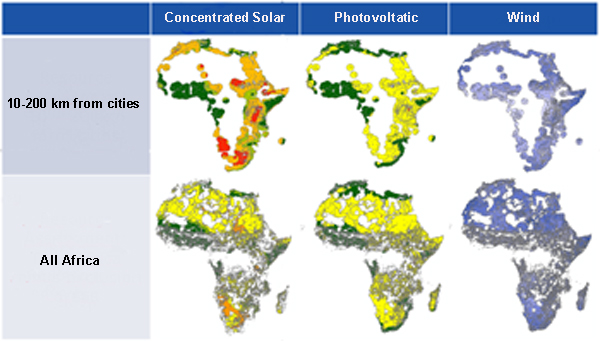Renewable Energy Research to Focus on Africa
RESEARCH NEWS
In partnering with the International Renewable Energy Agency, KTH positions itself to create a range of new research and internship opportunities. Professor Mark Howells, point man for the relationship, is hoping to attract talented students looking to make real contributions to economic development and climate change mitigation at the same time they earn their degrees.

Can alternative energy help developing countries “leapfrog” over the pollution and security problems of fossil fuels the same way mobile phone networks are bringing advanced communication services to areas never reached by traditional wireline telephones? Professor Mark Howells, head of the KTH Division of Energy Systems Analysis, believes it can. It sounds a bit odd, but he points to Norway as a model for African energy development.
“Africa is finally experiencing an era of strong economic growth,” he says. “The continent is showing GDP increases that beat Europe, North America and Asia, and investment levels are rising steeply. This is good news, of course, but it won’t be sustainable if Africa falls into the trap of relying on the same traditional energy sources that developed countries are already addicted to.”
Just as much of Africa is now getting its first access to the Internet through high-speed cellular — bypassing construction of expensive wireline networks — Howells believes renewable energy offers the best hope for building economic opportunity in an era of scarce resources and the threat of climate change.
While vast amounts of oil and natural gas remain to be exploited in Africa, Howells says those resources should be exported to earn income for development — and possibly to generate more revenue in any future international carbon-trading scheme. “Over the last 50 years, Norway has become the world’s third-largest oil exporter. That wealth might have been used to generate a boom for the current generation, but they decided instead to think long-term, investing much of the income and building a solid basis for future generations. By moving into hydro, solar, wind and biofuels now, Africa could do the same.”
With Africa’s stunningly diverse geography, climate, and economic and social systems, no two countries are alike in their ability to make use of sustainable energy. “To grow their renewable energy sectors, African countries need to develop detailed strategies based on scientific evidence and carefully planned engineering solutions,” Howells says. “KTH research is already strong in these areas, and I see any number of opportunities for our Master’s and PhD students to write theses that can be integrated into national plans.”
A co-operative agreement signed in May between KTH and the International Renewable Energy Agency (IRENA), puts Howells and the Division of Energy Systems Analysis in a position to recruit those researchers and interns both within Sweden and internationally.
An outgrowth of the United Nations based in Abu Dhabi, IRENA is a partnership of 94 member governments (and another 64 signatories and applicants for membership) dedicated to promoting renewable energy worldwide through international co-operation, sharing best practices and funding research and development.

“We’re helping IRENA do the research that governments need to develop massive renewable energy and cleantech programmes,” Howells says. More than just funding research, IRENA will help students in project planning and data collection through high-level access to the target countries’ ministries. “IRENA has a menu of topics where governments are looking for answers, and we can now translate these into student projects. With this relationship, we’re plugged directly into the agencies that define the research needs and have the historic data for study.”
Howells says several existing internships will be integrated into IRENA, including production of interactive renewable energy resource maps displaying potential sites for wind, solar and bioenergy production, and a project examining rural electrification for currently unserved regions. “We already have students from Jamaica, Africa, Pakistan and of course Sweden working on these African renewable energy studies” he says. “They’re making real contributions to development in these countries, and that’s a big motivator.”